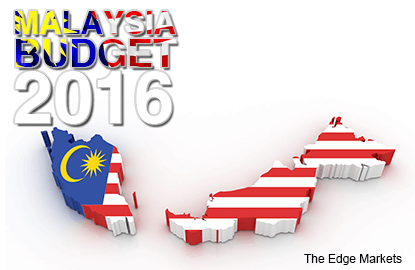
KUALA LUMPUR (Oct 23): The government should review its operating expenditure (opex) and reform its structure, if it wants to avoid going down the same path as Greece, according to a local fund manager.
Areca Capital Sdn Bhd's chief executive, Danny Wong, told theedgemarkets.com that the government should work on increasing efficiency and cutting down certain expenses, as the large operating expenditure is not healthy for the country in the long run.
“Emoluments and pensions, for example, needs to be addressed. Perhaps the government could convert from the current beneficial scheme to a contributing scheme,” Wong said, adding that the government should consider moving from pension scheme to an EPF scheme for civil servants.
The newly-unveiled Budget 2016 has a total allocation of RM267.2 billion, compared with RM260.7 billion in 2015. Of next year's amount, RM215.2 billion is for opex and RM52 billion for development expenditure.
Under the opex, RM70.5 billion is for emoluments, and RM36.3 billion for supplies and services. Meanwhile, a total of RM106.6 billion is allocated for fixed charges and grants, RM761 million for purchase of assets, and RM1 billion for other expenditure.
Wong also opined that most points in the newly-unveiled Budget 2016 were neutral, but a definite plus was that fiscal deficit will be within a manageable level of 3.2% this year.
He said the continuation of local mega projects, such as the Refinery and Petrochemical Integrated Development Project (Rapid) Complex in Pengerang, Johor, will also attract more private investment.
“It [Rapid project] will attract foreign investments in the Pengerang area,” he added.
However, he noted the increase in Bantuan Rakyat 1Malaysia (BR1M) and minimum wage will have a negative impact to certain sectors, especially labour intensive ones.
“It will impact the costing of plantations, for example, as it will add pressure to fixed cost and have a multiplier effect, given low wage earners will also demand a raise,” Wong said, referring to the increase in minimum wage.
Meanwhile, in a separate statement, Malaysian Industrial Development Finance Bhd (MIDF) believes that the larger allocation of the development expenditure towards the trade and industry sector is timely, as the country prepares itself over the possibility of joining the Trans-Pacific Partnership Agreement (TPPA).
Group managing director Datuk Mohd Najib Abdullah said that the country’s manufacturing and external trade sectors require assistance to undergo adjustments, in light of heightened international competition and falling demand.
“Budget 2016 demonstrates the government’s proactive response to the impact of evolving technologies, and it reflects the importance accorded by the government, of the need to have an industrial ecosystem which is nimble enough to take advantage of innovation,” Mohd Najib said.
Under the development expenditure, the economic sector will receive the highest share at RM30.1 billion; followed by the social sector with RM13.1 billion for education, training, health, and housing; then the security sector with RM5.2 billion; while the balance RM1.6 billion will go to general administration, with RM2 billion for contingencies.